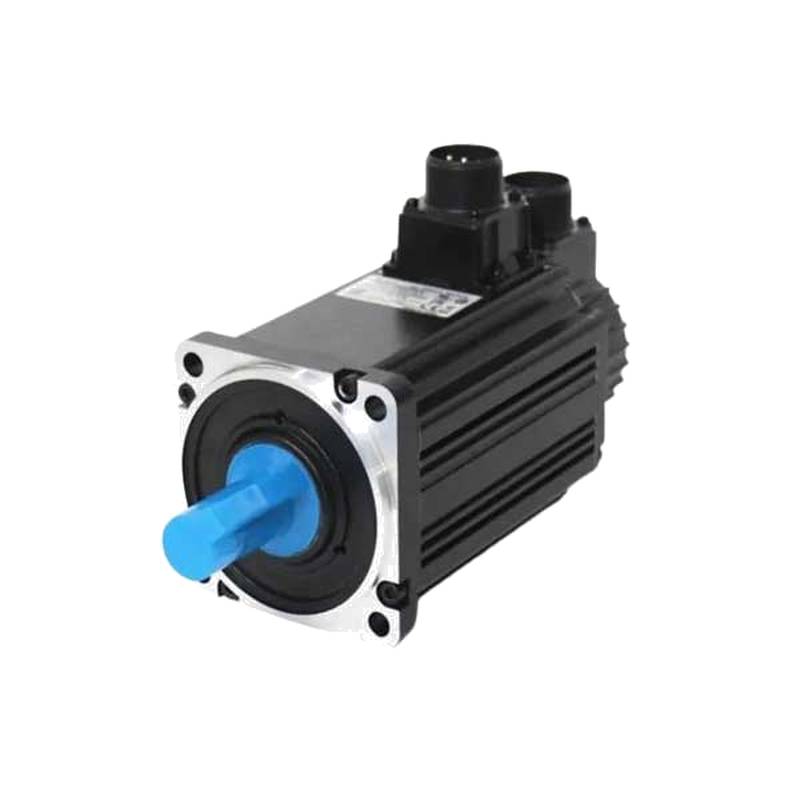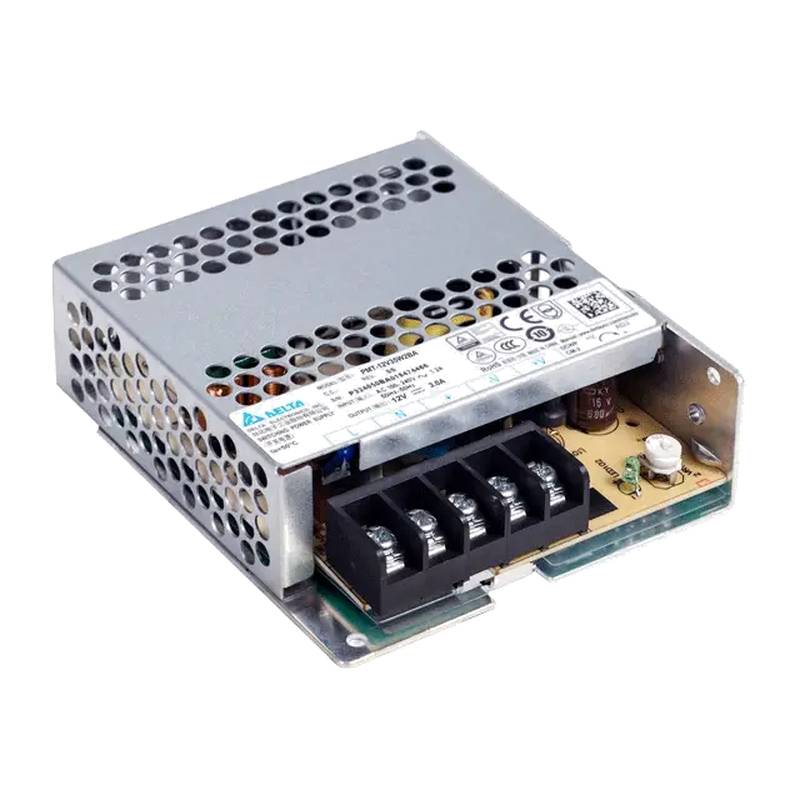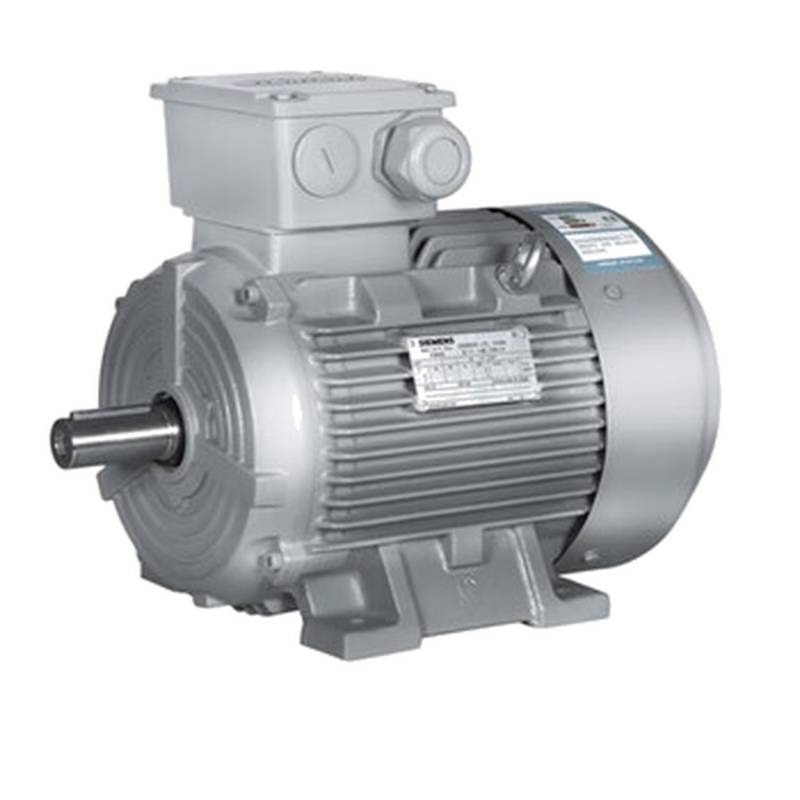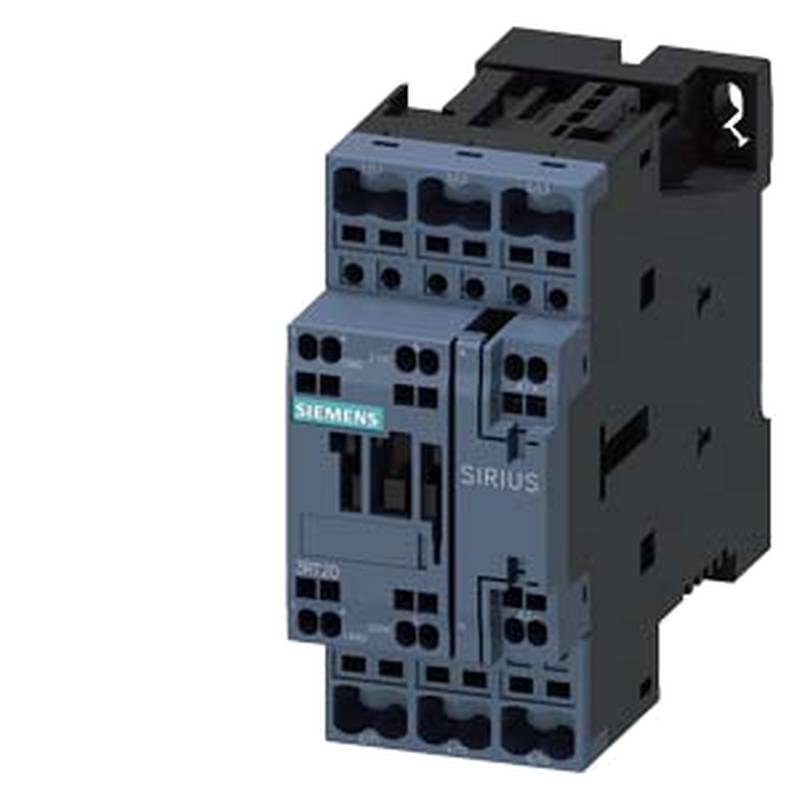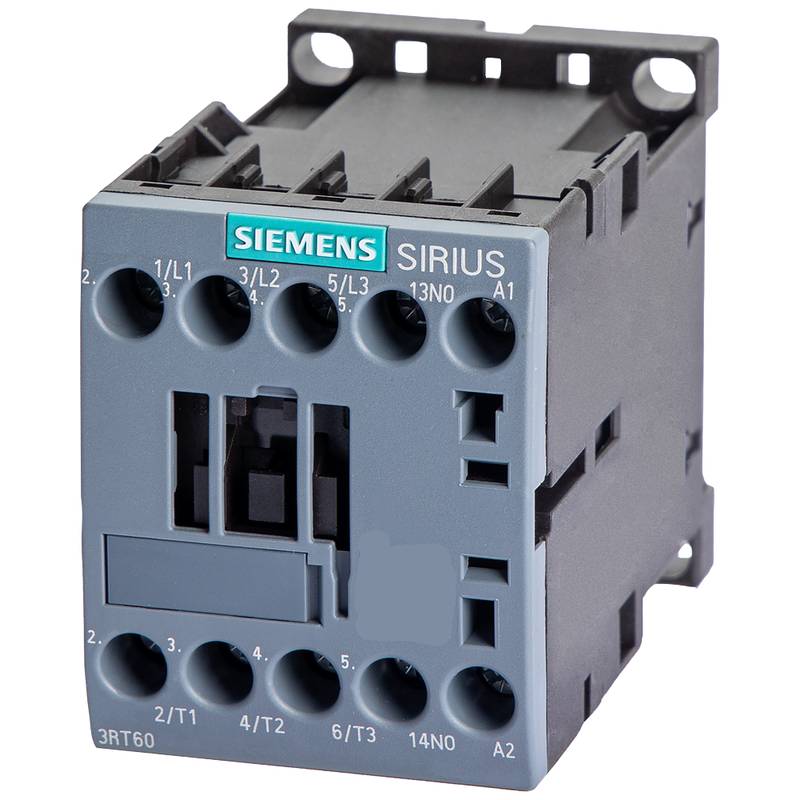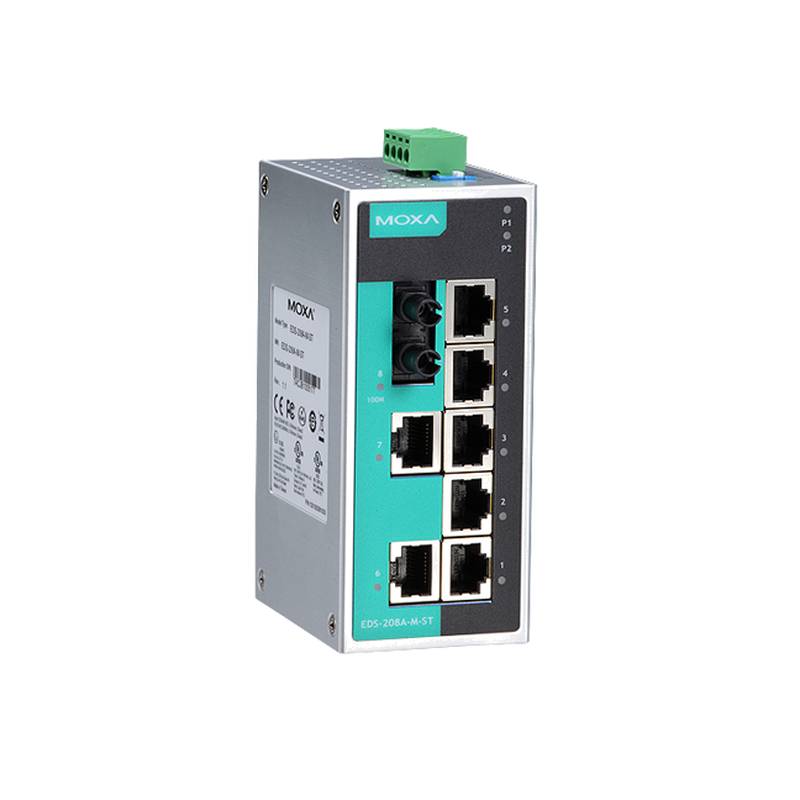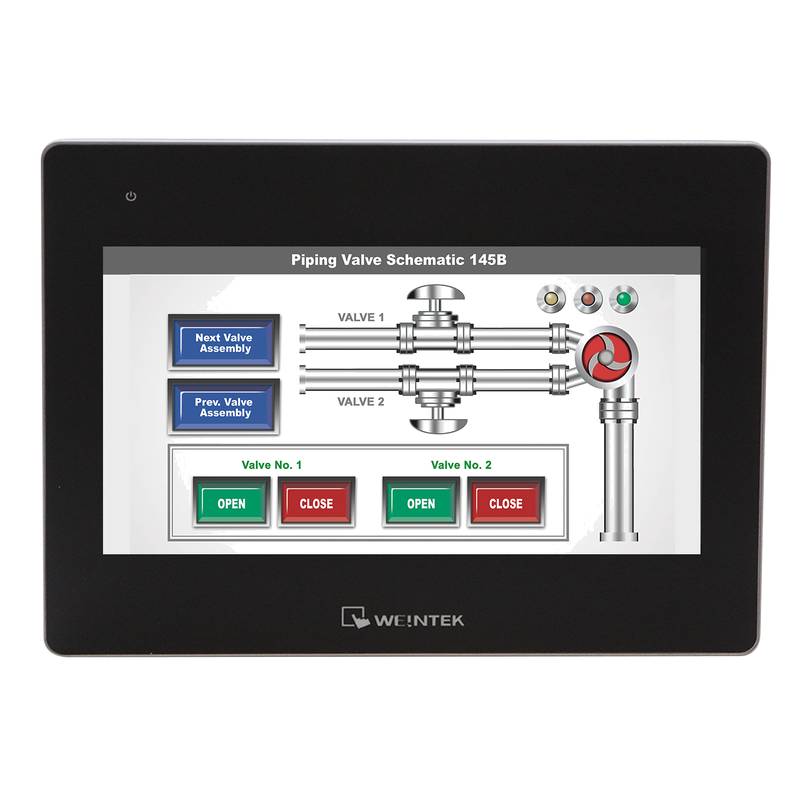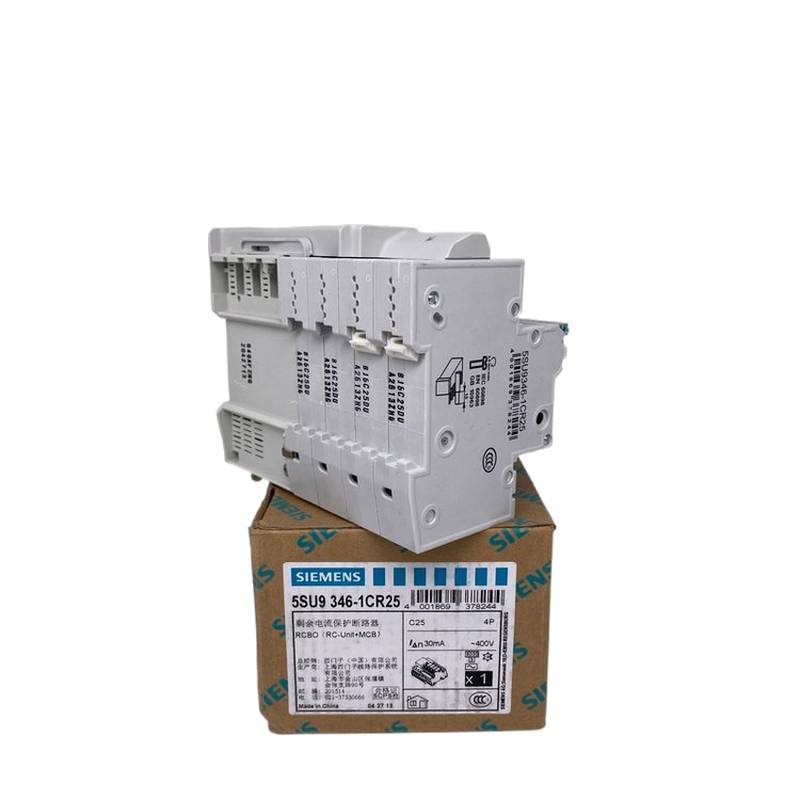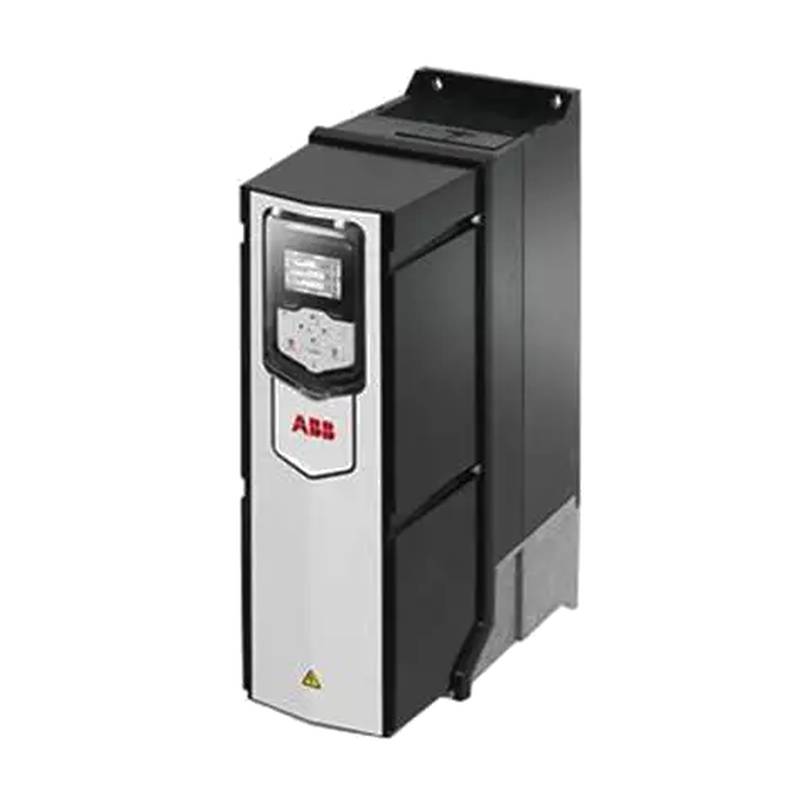
The Delta ECM-B3M-K21320RS1 Low Inertia Servo Motor delivers exceptional performance for demanding automation tasks, boasting a compact design, high torque density, and precise control capabilities. This advanced servo motor is engineered for applications requiring rapid acceleration and deceleration, making it an ideal choice for high-speed pick-and-place, automated assembly, and precision motion control systems. Its low inertia rotor design significantly enhances dynamic response, while integrated advanced features ensure reliable operation and seamless system integration. Key technical parameters include a rated voltage of 200V, a continuous stall torque of 3.04 Nm, and a peak stall torque of 9.12 Nm. With a continuous stall current of 7.0 A and a peak stall current of 21.0 A, the ECM-B3M-K21320RS1 offers robust power delivery. The motor features a flange size of 80mm and an encoder resolution of 17-bit (131072 PPR) for superior positional accuracy. Its IP65 protection rating ensures durability in challenging industrial environments.
Core Features & Market Positioning
The Delta ECM-B3M-K21320RS1 distinguishes itself through its superior low inertia rotor construction, enabling unparalleled acceleration and deceleration speeds critical for optimizing cycle times in automated manufacturing. This inherent advantage positions it competitively against higher inertia motors that would otherwise limit dynamic performance. Delta's commitment to precision is evident in the 17-bit encoder, providing exceptionally high resolution for precise positioning and smooth motion control, a key differentiator for quality-sensitive applications. Furthermore, its compact form factor, achieved through efficient design and material utilization, allows for space-saving integration into complex machinery, a significant benefit in crowded industrial setups. The motor's robust construction, including its IP65 rating, underscores its suitability for harsh operational conditions, reducing downtime and maintenance costs compared to less protected alternatives.
Key Application Scenarios
This low inertia servo motor excels in applications demanding swift and accurate movements. It is particularly well-suited for high-speed packaging machinery, where rapid tool changes and precise product handling are paramount. In the electronics manufacturing sector, the ECM-B3M-K21320RS1 is instrumental in automated assembly lines for tasks such as precise component placement and intricate soldering operations requiring exceptional dexterity. The food and beverage industry benefits from its hygienic design potential and consistent performance in high-throughput filling and capping machines. Furthermore, its precision makes it a valuable component in robotic arms used for intricate pick-and-place operations, material handling, and collaborative robot (cobot) applications that require safe and responsive interaction with human operators.
Practical System Integration Guidance
Integrating the Delta ECM-B3M-K21320RS1 into your automation system is streamlined due to its common interface protocols and robust build. Ensure a stable power supply matching the motor's 200V rating and proper grounding to prevent electrical noise and ensure safety. The motor's feedback system utilizes a standard encoder connection; consult Delta's documentation for precise wiring diagrams to connect the 17-bit encoder to your servo drive, ensuring correct signal integrity. For optimal performance, select a Delta servo drive that is compatible with the ECM-B3M series and rated for its continuous and peak current demands. Proper motor mounting with secure fastening is essential to prevent vibration and ensure longevity. Initial commissioning should involve setting motor parameters on the servo drive, including pole count and encoder resolution, followed by incremental tuning of gains to achieve desired responsiveness without oscillation.
Operation and Risk Mitigation
Safe operation of the Delta ECM-B3M-K21320RS1 servo motor necessitates adherence to industrial safety standards. Always ensure the motor is securely mounted and that all electrical connections are properly insulated and protected from environmental contaminants, especially given its IP65 rating. During operation, monitor motor temperature and torque output to prevent exceeding its continuous or peak ratings, which could lead to overheating and premature failure. Familiarize yourself with the associated servo drive's fault codes; common issues may relate to encoder errors (e.g., loss of signal), over-current conditions, or over-temperature alerts. Implementing proper lockout/tagout procedures during maintenance or troubleshooting is critical to prevent unexpected motor startup. Regular inspection of motor windings and connections can preemptively identify potential issues.
Scalability & Long-Term Value
The Delta ECM-B3M-K21320RS1 servo motor offers significant long-term value through its compatibility with Delta's broader automation ecosystem. This allows for seamless integration with Delta's range of PLCs, HMIs, and other servo drives, facilitating system expansion and upgrades without requiring a complete platform overhaul. The inherent precision and durability of the motor contribute to reduced maintenance needs and extended operational life, minimizing total cost of ownership. For facilities looking to embrace Industry 4.0 principles, the motor's compatibility with digital communication protocols, when paired with appropriate servo drives and control systems, enables advanced data acquisition for performance monitoring, predictive maintenance, and process optimization, ensuring its relevance in evolving smart manufacturing environments.
Frequently Asked Questions
What are the primary advantages of the Delta ECM-B3M-K21320RS1 servo motor?
This motor offers exceptional dynamic response due to its low inertia design, enabling rapid acceleration and deceleration. Its high torque density allows for powerful performance in a compact package, ideal for space-constrained applications. The 17-bit encoder ensures superior positional accuracy and smooth motion control, critical for precision tasks.
The motor's robust construction, including an IP65 rating, provides excellent protection against dust and water ingress, enhancing reliability in demanding industrial environments. Its efficiency minimizes heat generation during operation, contributing to longer service life and reduced operational costs.
These combined benefits translate to optimized cycle times, improved product quality, and increased overall equipment effectiveness (OEE) in automated systems. The motor is designed for easy integration with compatible Delta servo drives.
How does the low inertia of the ECM-B3M-K21320RS1 benefit high-speed applications?
Low inertia means less mass needs to be accelerated and decelerated, allowing for significantly faster changes in motor speed. This directly translates to shorter move times and increased throughput in automated machinery.
For pick-and-place, robotics, and packaging applications, this rapid dynamic response is crucial for achieving high cycle rates. It enables precise positioning with minimal overshoot, reducing settling time and improving the efficiency of each operation.
Consequently, machines equipped with low inertia motors like the ECM-B3M-K21320RS1 can achieve higher production volumes and maintain tighter tolerances, offering a competitive edge in fast-paced manufacturing environments.
What type of encoder is used in the Delta ECM-B3M-K21320RS1 and why is 17-bit resolution important?
The Delta ECM-B3M-K21320RS1 features a 17-bit encoder, which provides 131,072 pulses per revolution (PPR). This high resolution is critical for achieving extremely precise positional feedback.
Higher encoder resolution allows the servo drive to make finer adjustments to motor speed and position, resulting in smoother motion and reduced error in the commanded path. This is essential for applications requiring micron-level accuracy.
For tasks like intricate assembly, semiconductor handling, or precision dispensing, the 17-bit encoder ensures that the motor can execute commands with exceptional fidelity, minimizing deviations and ensuring consistent, repeatable results.
What are the typical torque and current ratings for this servo motor?
The ECM-B3M-K21320RS1 motor has a continuous stall torque of 3.04 Nm and a peak stall torque of 9.12 Nm. This indicates its capacity for sustained operation and its ability to handle transient load demands.
Its continuous stall current is rated at 7.0 A, which is the maximum current the motor can handle continuously without overheating. The peak stall current is 21.0 A, representing the maximum current it can deliver for short durations to achieve high torque.
These specifications are crucial for selecting an appropriately sized servo drive and ensuring the motor operates within its designed thermal limits for optimal performance and longevity.
Can the Delta ECM-B3M-K21320RS1 be used in dusty or wet environments?
Yes, the Delta ECM-B3M-K21320RS1 servo motor is designed with an IP65 protection rating. This signifies that the motor is dust-tight and protected against water jets from any direction.
The IP65 rating ensures that the motor's internal components are shielded from ingress of solid particles like dust, which is common in many industrial settings. It also protects against low-pressure water streams, making it suitable for washdown environments or areas prone to splashing.
This level of ingress protection enhances the motor's durability and reliability, reducing the risk of premature failure due to environmental contaminants and allowing for its deployment in a wider range of challenging industrial applications.
What is the flange size of the ECM-B3M-K21320RS1 and what does this imply for mounting?
The Delta ECM-B3M-K21320RS1 servo motor features an 80mm flange size. This standardized mounting interface dictates the physical dimensions for attaching the motor to machinery.
An 80mm flange is a common size in industrial automation, allowing for straightforward integration with various gearboxes, mounting brackets, and machine structures. It ensures mechanical compatibility with a wide range of automation components.
When designing or retrofitting a system, confirming this flange size is critical to ensure a proper mechanical fit. It facilitates secure mounting, which is essential for maintaining alignment, minimizing vibration, and ensuring efficient power transmission.
How is the Delta ECM-B3M-K21320RS1 typically wired for operation?
Wiring the ECM-B3M-K21320RS1 involves connecting the motor's power leads and encoder feedback cable to a compatible Delta servo drive. Specific wiring diagrams are provided in the product manual.
The motor power leads (typically U, V, W) connect to the corresponding output terminals on the servo drive to deliver power. The encoder cable, carrying positional information, connects to the drive's encoder input port, ensuring correct pin assignments.
Proper grounding is also essential for electrical safety and noise reduction. Always refer to the official Delta documentation for the precise wiring configuration, ensuring all connections are secure and insulated to prevent operational issues and hazards.
What are some common troubleshooting issues for this servo motor?
Common issues might include encoder signal errors, indicated by fault codes on the servo drive, often due to loose connections or cable damage. Over-current faults can occur if the motor encounters excessive load or if the drive parameters are incorrectly set.
Over-temperature warnings or shutdowns suggest the motor is operating beyond its thermal limits, which could stem from insufficient cooling, continuous operation at peak torque, or incorrect load calculations. Unexpected vibrations might point to mounting inaccuracies or bearing wear.
Addressing these issues requires consulting the servo drive's error codes and the motor's maintenance manual. Careful inspection of connections, load assessment, and environmental conditions are crucial for diagnosis and resolution.
How does this servo motor fit into the broader Delta automation product line for scalability?
The ECM-B3M-K21320RS1 is designed for seamless integration with Delta's comprehensive range of servo drives, PLCs, and HMIs. This allows for a unified control architecture and easy system expansion.
Users can scale their automation solutions by adding more ECM-B3M-K21320RS1 motors or other Delta servo products to their existing setup, leveraging common programming software and communication protocols. This interoperability simplifies complex machine designs.
This cohesive ecosystem ensures that as a company's automation needs grow, they can readily incorporate additional Delta components, maintaining consistency and efficiency across their entire manufacturing process, enhancing long-term investment value.
What are the benefits of using a servo motor with IP65 protection?
An IP65 rating means the motor is protected against dust ingress and is capable of withstanding water jets. This makes it highly suitable for use in demanding industrial environments where contamination is a concern.
This protection reduces the likelihood of internal motor damage from airborne particles or accidental splashes of liquids, leading to increased operational reliability and reduced maintenance requirements. It also allows for easier cleaning of the motor.
Consequently, machines incorporating IP65-rated motors can operate more consistently in environments like food processing plants, chemical facilities, or areas with heavy particulate matter, ensuring longevity and minimizing costly downtime.














